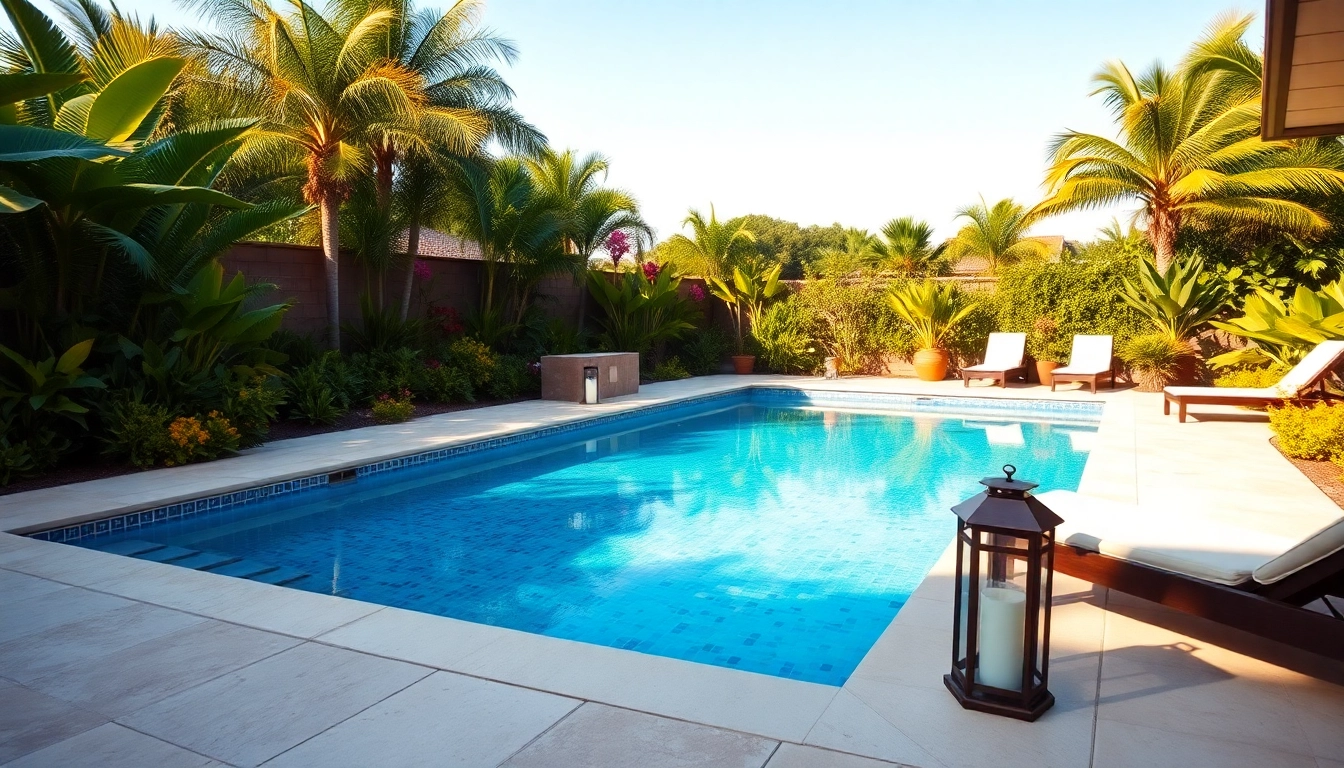
Understanding Pool Renovations
Swimming pools are often considered the heart of a backyard, offering a space for relaxation, exercise, and entertainment. However, over time, the allure of a shimmering pool can begin to fade due to wear and tear, outdated features, or simply a shifting personal aesthetic. This is where a pool renovation company comes into play, helping homeowners breathe new life into their aquatic retreats. In this article, we will delve deep into the concept of pool renovations, the services offered, and how to select the right renovation company to meet your specific needs.
What is a Pool Renovation Company?
A pool renovation company specializes in restoring or enhancing existing swimming pools without the need to completely replace them. These companies provide a variety of services ranging from resurfacing and redesigning pool interiors to updating equipment, enhancing safety features, and improving aesthetics. Unlike general contractors who may dabble in multiple areas of construction, a pool renovation company focuses exclusively on pools, bringing expertise that ensures high-quality work tailored to meet the unique demands of every swimming pool project.
Why Consider Renovating Your Pool?
There are several compelling reasons to consider renovating your pool:
- Restoration of Functionality: Over time, equipment may malfunction or surfaces may wear down. Renovation can restore pools to their intended function.
- Modern Aesthetics: Trends in pool design evolve, and an updated look can enhance the visual appeal of your backyard, increasing your property’s overall value.
- Updated Safety Standards: Renovations allow homeowners to upgrade safety features to meet current standards, thus ensuring a safer swimming environment.
- Increased Energy Efficiency: Modern pools can benefit from energy-efficient pumps, heaters, and lighting, which save money in utility costs over time.
Types of Pool Renovation Services
Pool renovation companies offer a variety of services tailored to different needs and budgets:
- Resurfacing: This includes applying new finishes to the pool surface, addressing cracks, and restoring the overall look.
- Tile Replacement: Upgrading pool tiles can significantly change the pool’s aesthetic, with options from glass tiles to natural stone.
- Deck Resurfacing: Refinishing the area surrounding the pool ensures a cohesive look and can increase safety by reducing slipping hazards.
- Lighting and Landscaping Updates: Incorporating new lighting options and landscaping features can transform a dull pool area into a vibrant and inviting oasis.
- Installation of Modern Safety Features: Adding safety covers, alarms, and other protective measures enhances peace of mind for owners with children or pets.
Choosing the Right Pool Renovation Company
With numerous options available, selecting the right pool renovation company can feel daunting. However, there are key factors to consider that can help streamline the process.
Key Attributes to Look For
When searching for a pool renovation company, consider the following:
- Specialization: Ensure the company exclusively focuses on renovations rather than general pool construction or maintenance.
- Experience: Look for companies with a proven track record in the industry. Experience indicates a deeper understanding of pool systems and design.
- Portfolio: Request to see past projects. A well-documented portfolio is a good indicator of quality and style.
- Customer Service: Companies should provide clear communication throughout the process, from initial consultation to project completion.
Comparing Costs and Services
Different companies will offer various pricing models and service packages. It is beneficial to compare quotes but consider the quality and type of services included, rather than solely focusing on the bottom line. Additional services like warranties or maintenance options could potentially save money in the long run.
Reading Reviews and Testimonials
Customer feedback is invaluable. Look for reviews on platforms like Google, Yelp, or the company’s own website. Pay attention to the volume and consistency of positive reviews, as well as how the company responds to negative feedback, which can signify their commitment to client satisfaction.
Design Trends in Pool Renovation
Pool renovation isn’t just about restoration; it’s also about trend incorporation. Being aware of current design trends can help make your renovation project reflect modern aesthetics while improving functionality.
Modern Features Every Pool Should Have
Some popular features that can elevate the modern appeal of your renovated pool include:
- Smart Technology: Automation systems can control lights, temperature, and even safety features from a mobile device.
- Infinity Edges: Creating a seamless transition between pool and landscape enhances visual appeal dramatically.
- LED Lighting: Energy-efficient lighting can be used to highlight water features and enhance nighttime ambiance.
Eco-friendly Renovation Options
As environmental considerations rise, many homeowners seek eco-friendly renovations. Options include:
- Energy-efficient Equipment: Including solar heaters, variable-speed pumps, and LED lighting minimizes energy consumption.
- Natural Filtration Systems: These systems maintain clean water without the need for harsh chemicals.
- Recycled Materials: Using recycled materials for decking or water features can reduce the carbon footprint of your renovation project.
Integrating Landscaping with Your Pool Design
Landscaping can enhance the overall beauty and functionality of your pool area. Consider incorporating:
- Native Plants: Selecting local species requires less maintenance and supports the local ecosystem.
- Hardscapes: Pathways and seating areas can be designed to complement the pool design and provide additional space for relaxation or entertainment.
- Water Features: Adding fountains or waterfalls can enhance the atmosphere and connection to natural elements.
Planning Your Renovation Project
Once you’ve made the decision to renovate, effective planning is critical to a smooth renovation experience.
Setting Your Budget
Establishing a realistic budget at the outset prevents overspending. Consider costs associated with materials, labor, permits, and unexpected expenses. It’s wise to set aside a contingency fund (typically around 10-20% of your budget) for unforeseen issues that may arise during renovation.
Timeline for Completion
Every renovation project will have a unique timeline influenced by the scope of work and the company’s scheduling. Discuss timelines explicitly with your contractor to create a mutual understanding of project phases and completion dates.
Permits and Regulations
Understanding local regulations and ensuring the proper permits are obtained is crucial. Most municipalities require permits for significant renovations, especially those altering the pool’s structure or plumbing. A professional pool renovation company should be familiar with these permits and can often handle the paperwork for you.
Measuring Success After Renovation
Once your pool renovation is complete, it’s time to assess the project’s success. Evaluating the result involves quality of construction and the satisfaction derived from your newly renovated pool.
Evaluating the Quality of Work
Inspect the renovation for quality craftsmanship. Check for even surfaces, proper finishes, and functional features. Ensure that the renovation meets both your expectations and the standards outlined in your contract.
Assessing Customer Satisfaction
Reflect on your experience with the renovation company. How well did they communicate? Were they responsive during the project? Take note of how well they adhered to the timeline and budget. Gathering feedback from family and friends about the renovated pool’s appeal is also valuable.
Long-term Maintenance Tips
To ensure your newly renovated pool remains in stellar condition, follow these maintenance tips:
- Regular Cleaning: Schedule regular cleaning sessions to keep your pool water clear and free of debris.
- Water Testing: Regularly test and balance pool water chemistry to prevent issues like algae growth.
- Routine Inspections: Regularly check for signs of wear on surfaces or equipment parts to catch issues early.






